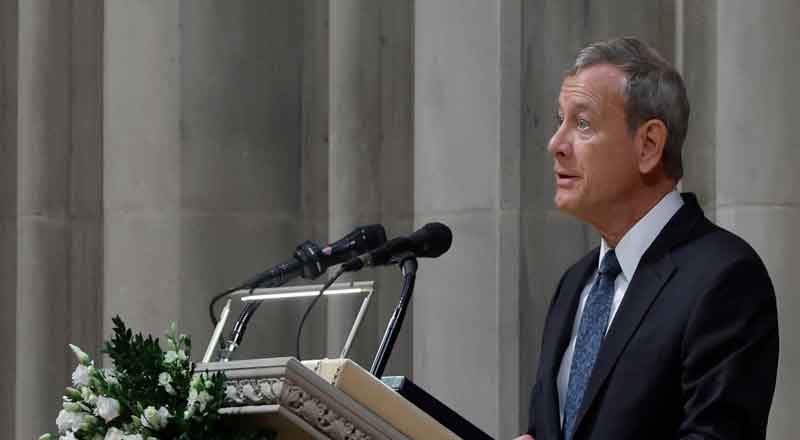The US Chief Justice John Roberts’ view on AI in the courts is significant because it reflects the growing discussion about the impact of this technology on the legal system.
Commenting on a recent incident where AI hallucinations led to lawyers citing non-existent cases in court papers. Chief Justice Roberts’ statement underscores the complex and nuanced way AI’s influence on the legal field needs to be considered. It’s not simply a matter of good versus bad, but rather a careful balancing act between recognizing its potential benefits and mitigating its potential risks.
He said AI had the potential to increase access to justice for indigent litigants, revolutionise legal research and assist courts in resolving cases more quickly and cheaply while also pointing to privacy concerns and the current technology’s inability to replicate human discretion.
The Chief Justice’s commentary is his most significant discussion to date of the influence of AI on the law, and coincides with several lower courts contending with how best to adapt to a new technology capable of passing the bar exam but also prone to generating fictitious content, known as “hallucinations.”
The key points to consider, there is increased access to justice. AI tools can help people navigate complex legal processes and access legal information, even without expensive lawyers. This could be particularly beneficial for low-income individuals and underserved communities.
AI can analyze vast amounts of legal data and precedents, saving lawyers time and effort while potentially improving the quality of legal arguments. At the same time, AI could automate tasks like document review and filing, making the court system more efficient and cost-effective.
At the same time, the statement could also be Bias and discrimination. AI algorithms can perpetuate existing biases if trained on biased data. This could lead to unfair outcomes in legal cases, particularly for marginalized groups.
The chances of lack of transparency and accountability. Since, the inner workings of some AI systems are opaque, making it difficult to understand how they reach their conclusions. This raises concerns about fairness and accountability in the legal system.
This would lead to Job displacement, AI could automate some legal tasks currently performed by humans, potentially leading to job losses in the legal field.
Overall, Chief Justice Roberts’ message is one of cautious optimism. He recognizes the potential benefits of AI in the legal system but urges careful consideration of the risks involved.





